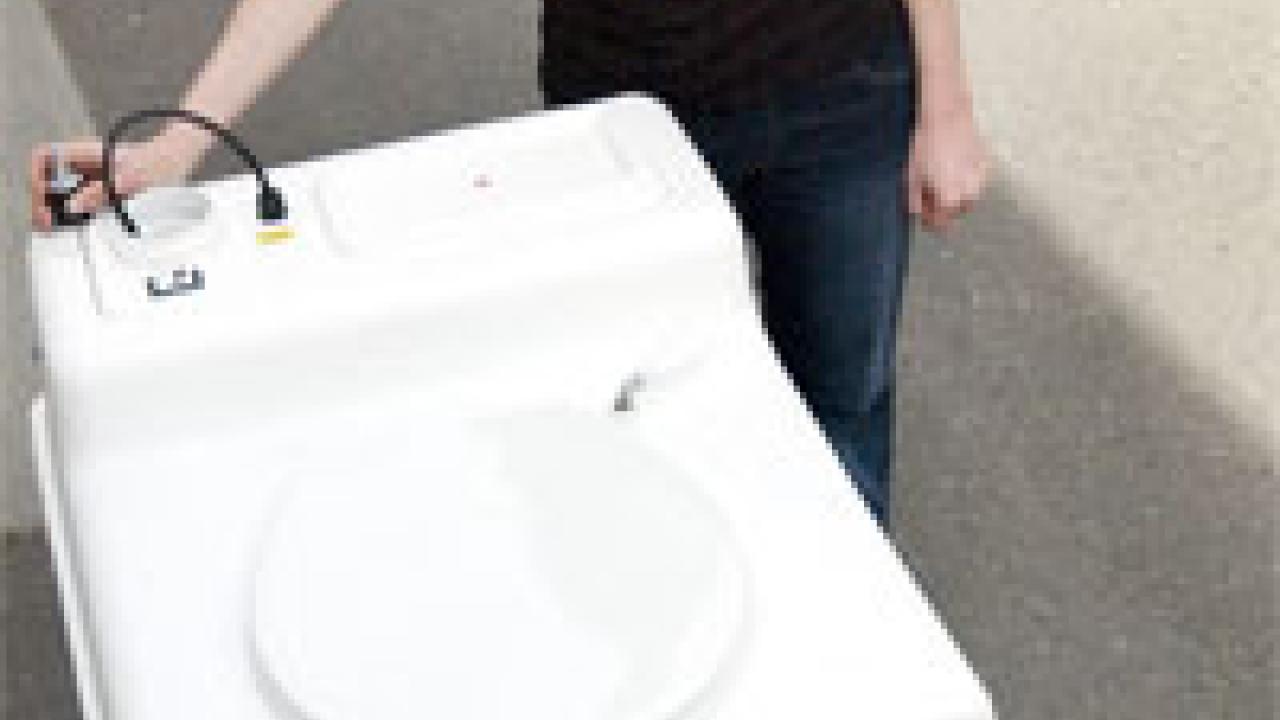For 12,000 people in remote Alaska native villages, human waste disposal is primitive. The toilets are 5-gallon plastic buckets, the "plumbing" that carries the waste away is an all-terrain vehicle, a sled or a person (all of which tend to drip on the ground along the way), and the "wastewater treatment plant" is a melted spot in the permafrost on the edge of town.
The use of these "honey buckets" contributes to a rate of gastrointestinal disease that is twice that of other Americans. But a UC Davis engineering student is working to change all that.
This week, in the Native Village of Chefornak in western Alaska, Simone Sebalo will begin testing an experimental toilet that could make things much healthier. If the $2,000 toilet works, the waste, instead of ending up in frozen limbo, will naturally turn into compost that can be used for gardening projects or to cover dump sites.
"These are citizens of the United States living with limited or nonexistent sanitation facilities," said Simone Sebalo, who is studying for her master's degree in environmental engineering. "But Alaska is a place where it's difficult to find sound environmental solutions. In much of the state, you can't put in septic tanks and leach lines because the ground is frozen all year. And logistically it's difficult to bring materials in."
Like many UC Davis students, Sebalo began her research career early, as an undergraduate, working on solid-waste issues with Native American tribes in the Pacific Northwest, under the tutelage of engineering professor emeritus George Tchobanoglous, an international authority on wastewater treatment, management and reuse. Her master's adviser is Geoff Schladow, a professor of civil and environmental engineering and director of the UC Davis Tahoe Environmental Research Center.
The project is funded by a U.S. Environmental Protection Agency grant with additional support from the Tahoe research program. This week, Sebalo will install the first toilet in the community store in Chefornak. A few months later, four more toilets will be installed in family homes.
A large part of the grant will support a Chefornak resident who will be the local project manager. He will translate educational material about the toilets into the native language of Yup'ik, maintain the toilets, collect additional data, and alter procedures based on Sebalo's findings.
Back in California, Sebalo will be able to monitor the first toilet, long-distance. Sensors on the toilet will measure the frequency of use, air temperature, compost moisture, and power consumption by the heater and fan. The data will be transmitted to UC Davis via satellite and the Internet, for the first detailed assessment of the actual performance and true costs of operating composting toilets under Alaskan conditions.
Media Resources
Simone Sebalo, Civil and Environmental Engineering, (707) 237-5272, ssebalo@zender-engr.net
